
“The bull comes out, up, with power, changing, gripping tight. He jumps up, changes. Tremendous play, tremendous combat. He threw him off, he threw him off.” Casimiro Contreras does the narration without getting tongue-tied even once, with overwhelming fluency.
One December morning, we asked him to improvise the story of a bull ride in the corral of his home in Los Ranchos of Santa Cruz, Guanacaste. In less than a minute, he had already strung together these phrases in his head, and in less than thirty seconds, he had already said them all in his throaty voice.
He had warned us beforehand that he was born “with the vocation of not getting tongue-tied in front of a microphone.” And he didn’t lie to us.
Casimiro has been narrating bull riding in the province for 36 years. For thirty of those years, he has done it consecutively at the National Typical Fiestas.
During a municipal council session, council member Jorge Leal described him as one of the great celebrities of the canton and the festivities, which attract thousands of Guanacastecans and foreigners annually to the Plaza Lopez bull ring.
I can’t imagine the Santa Cruz fiestas without the voice of Mr. Casimiro,” says a comment on a video on Facebook in which he goes out crossing himself twice before kicking off a bull riding event at the National Typical Fiesta.
Today, sitting in a wooden chair under a mango tree, Casimiro tells us about his life beyond the bull ring.
‘Previous‘ life
He says he started off earning ¢4 per day as a day laborer. “I was about 13 years old and was already using a machete at the La Pinta ranch, here in Santa Cruz,” he reminisces, reclined in the chair, wearing rubber boots and a typical Costa Rican brimmed hat called a chonete that covers his gray and white curly hair.
He remembers undergoing great economic hardship throughout his childhood and adolescence. He swore to himself that, if he had a family one day, he would do everything possible so that they wouldn’t experience what he had to go through.
“In my sixth grade photo, I appear with pants that my grandfather bought me and all of my big feet on the ground because I didn’t know what a pair of shoes was.“
So, from that moment, he says he planned everything he could. He did odd jobs and was a mason before starting with the employer where he worked until he retired five years ago as work inspector for the Ministry of Public Works and Transportation (MOPT).
He worked for MOPT for 31 years, climbing up through all of the positions until he could not go any farther because technicians, engineers or architects were next and he only had a sixth grade education. But still, he is proud of how far he got.
To him, the two children he planned to have, because that was how many he could support, are the greatest reflection of his effort.
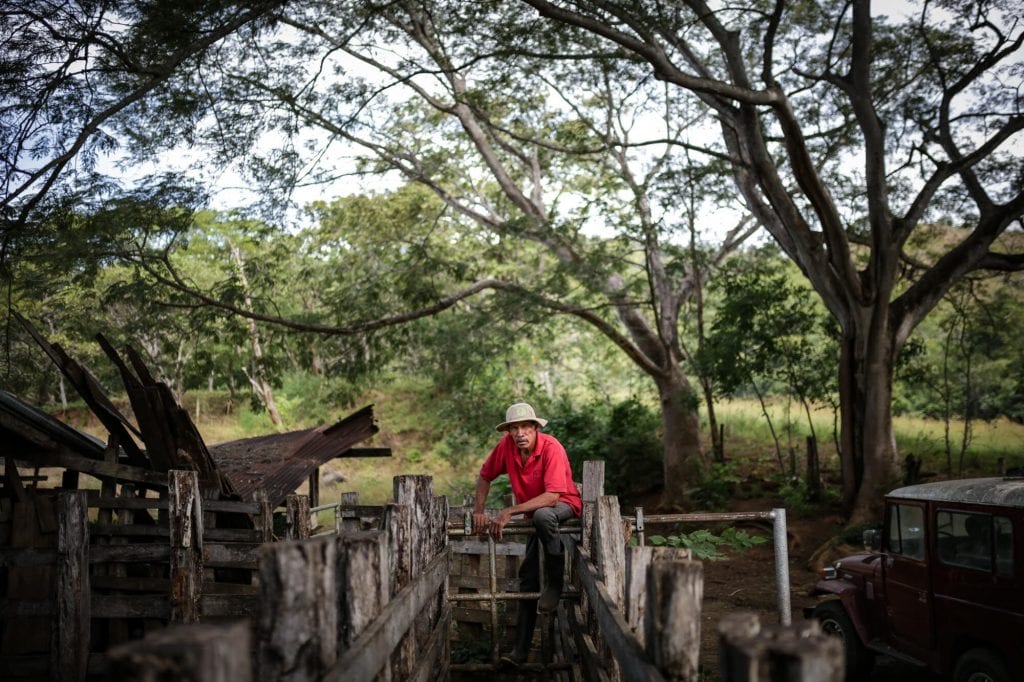
Casimiro is 62 years old and only completed sixth grade. He says he couldn’t continue studying, “not because of being stupid,” but because his mother was poor and putting him through school “was a luxury.”Photo: César Arroyo Castro
The Big Day
Before, around the 80’s, they played around with bulls in a plaza. Casimiro recalls that the spectators just watched as people ran away because the bull was coming but nobody knew what was going on.
I said, here there is a lack of passion, someone who says what color the bull is, what race it is, what its name is, who is riding it. And I started to liven up the bulls with a megaphone with flashlight batteries,” he speaks as a smile brings out two large creases from his nose to his chin.
With ¢75,000 (about $150) that an uncle lent him, he bought his first technical equipment: an amplifier and a microphone. Huacas and Villarreal were the first towns that hired him to announce their bull riding events.
He spent five years announcing in villages before he was able to do it at some national typical fiestas.
“Don Emel died, who was the person who announced every year. He was an iconic voice. Then they went out to look for a substitute,” he says, getting more and more restless, like someone who can’t sit still for a long time.
Casimiro learned all the technical vocabulary of large landowners: the terms for a bay colored bull, a black sorrel, a bull with horns that curve in, a calf. His knowledge is due to “them.”
“I used to go to the oldest landowners and I would spend up to six hours extracting all that information from them. I thought, “If they die, they take all that knowledge with them,” so I tried to absorb everything I could.”
Casimiro was picking up more commentator jobs while still being a MOPT inspector.
In 2003, Channel 7 invited him to be the bull riding commentator at the Zapote fiestas and presented him as “El Gamonal de la Bajura” (The Chieftain of the Lowlands), a nickname he has adopted since then and repeats in each commentary.
“[Gamonal] means overseer, like the person who gives orders on a ranch. It’s annoying to many, but what we do is very professional,” he states, adjusting a faded shirt that once served as the uniform for his company, Sonido Fiestero (Party Sound), the flavor of the lowland.
That day, he says that the channel’s announcers asked him if getting to be a commentator for a bull run in San Jose was the greatest moment in his career behind a microphone. “I was flattered, but no way. Narrating the national typical [fiestas of Santa Cruz] was the most beautiful thing that ever happened to me.”
“Santa Cruz is a monster. It is nerve-racking. I explain it better this way: even 20 years after the first time I narrated a bull ride in the typical fiestas, five bulls had to take their turns for me to start to calm my nerves,” he says, more and more on the edge of the seat.
Door, Papa!
Casimiro knows that typical bull riding risks the lives of the riders who get on the bulls without helmets or vests. He also recognizes the atmosphere of alcohol and machismo that revolves around the bullfighting world, sometimes with songs, verses and jokes loaded with stereotypes about how women and men should be.
He says that he doesn’t drink alcohol and that this is part of the formula to have his voice almost intact after decades of announcing, but he thinks that this environment is part of a package of customs and traditions that “cannot be denied.”
“I can tell you that if someone asks me not to play a song because it is offensive, I don’t play it. I also believe that women are respected. My line is respect,” he says, ready to wrap up the almost two hours of conversation.
For this Santa Cruz idiosyncrasy, Casimiro predicts that the bull riding will exist for many years to come and that his role as commentator will be replicated by one of the children who visit the bullring today.
“I’ve heard parents tell me, ‘Don Casimiro, where is the Sonido Fiestero that my kid wants to go to?’ That gives me hope.”


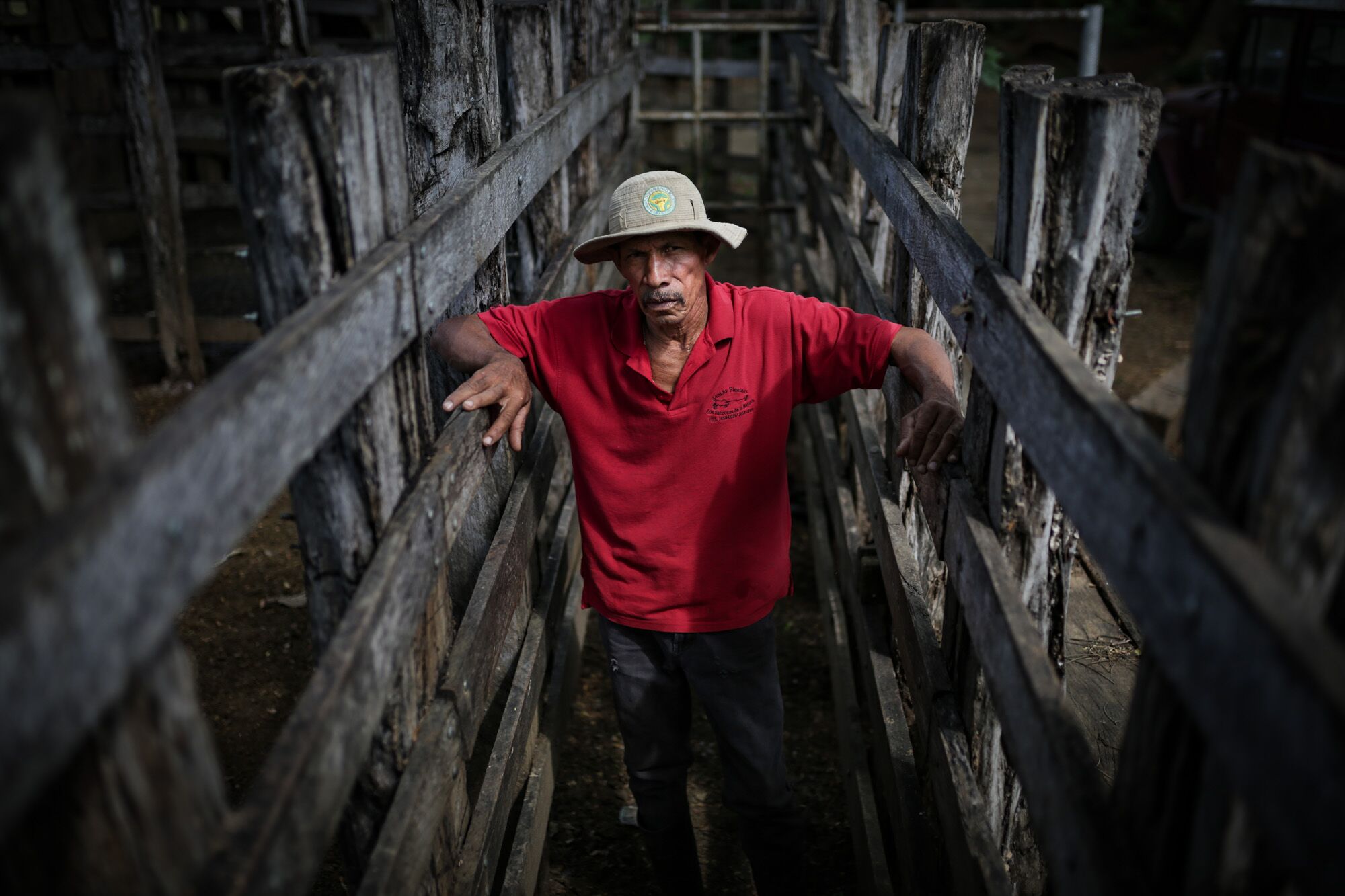
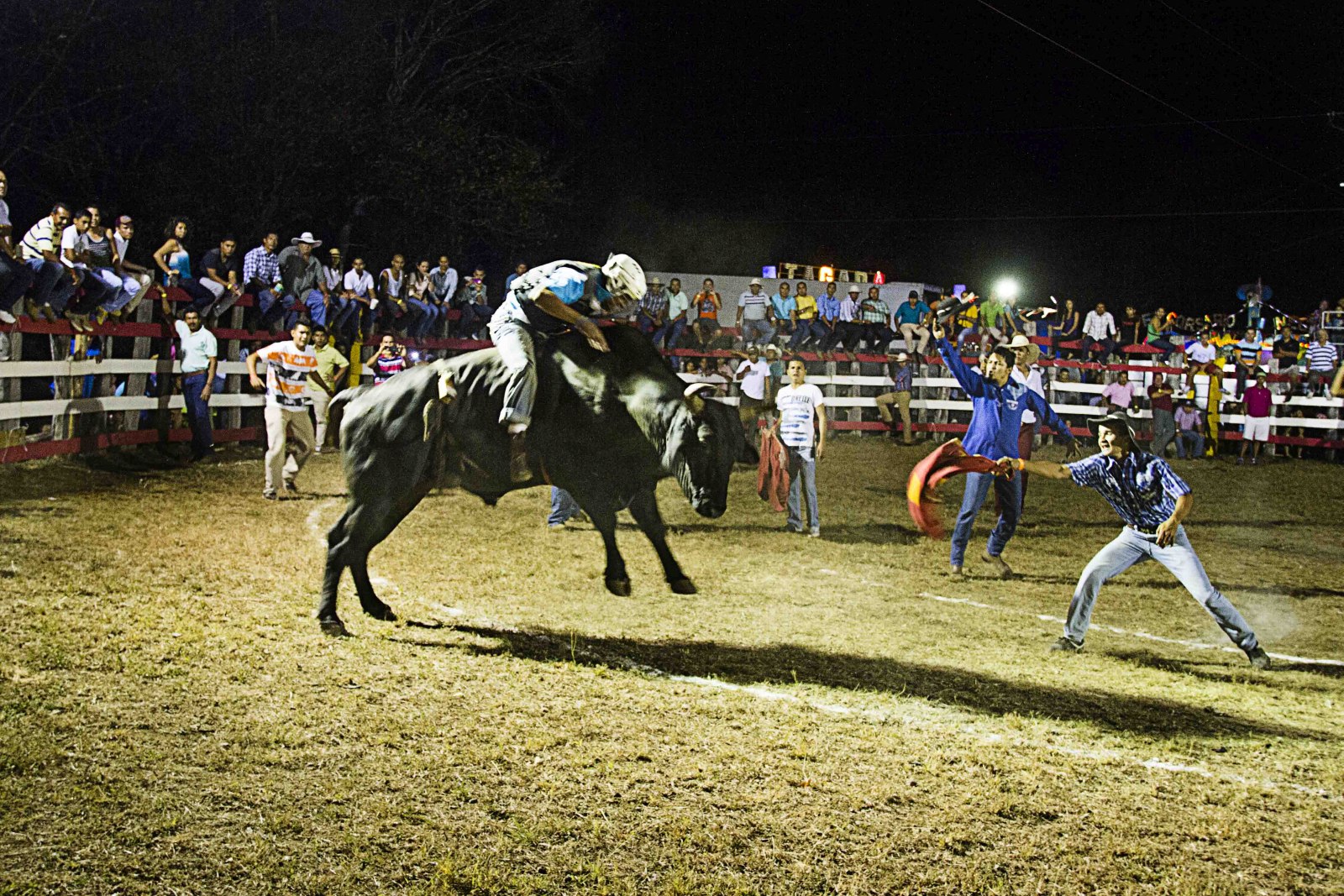
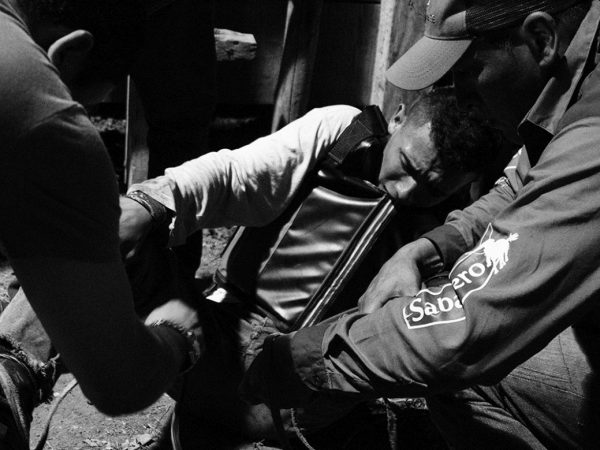
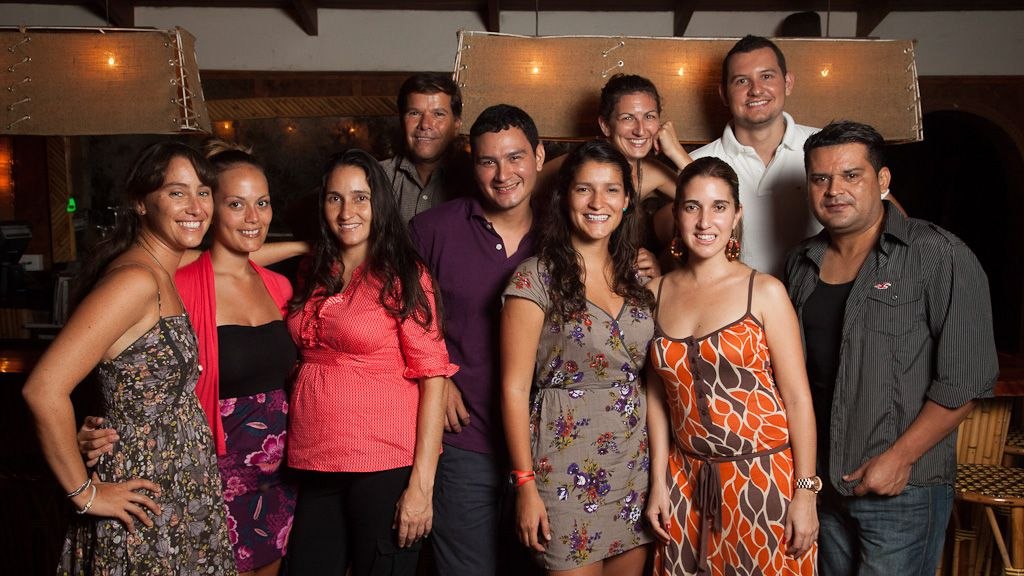

Comments